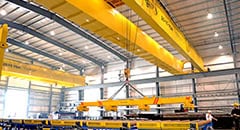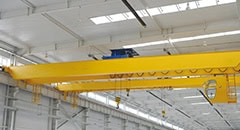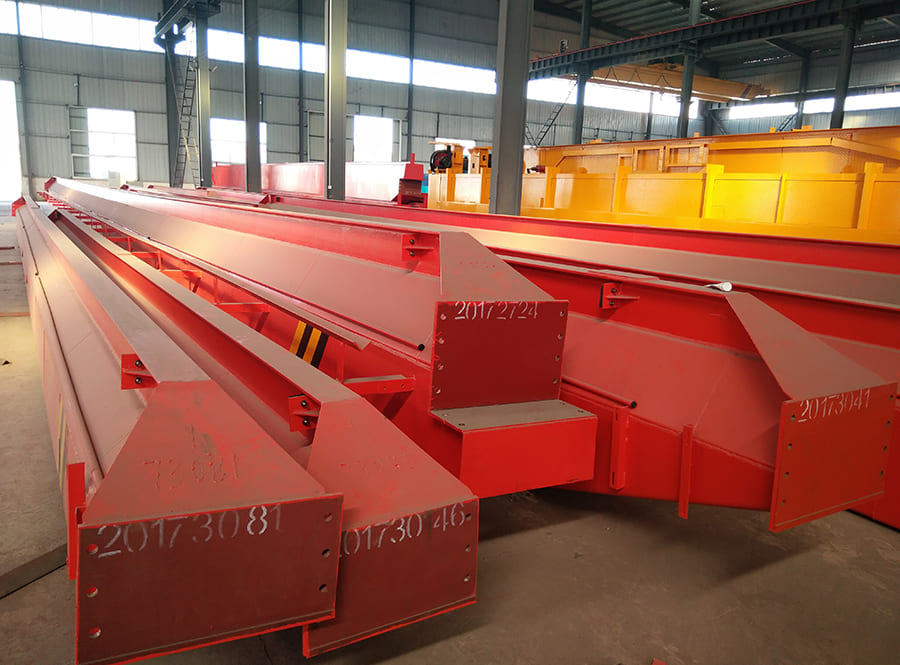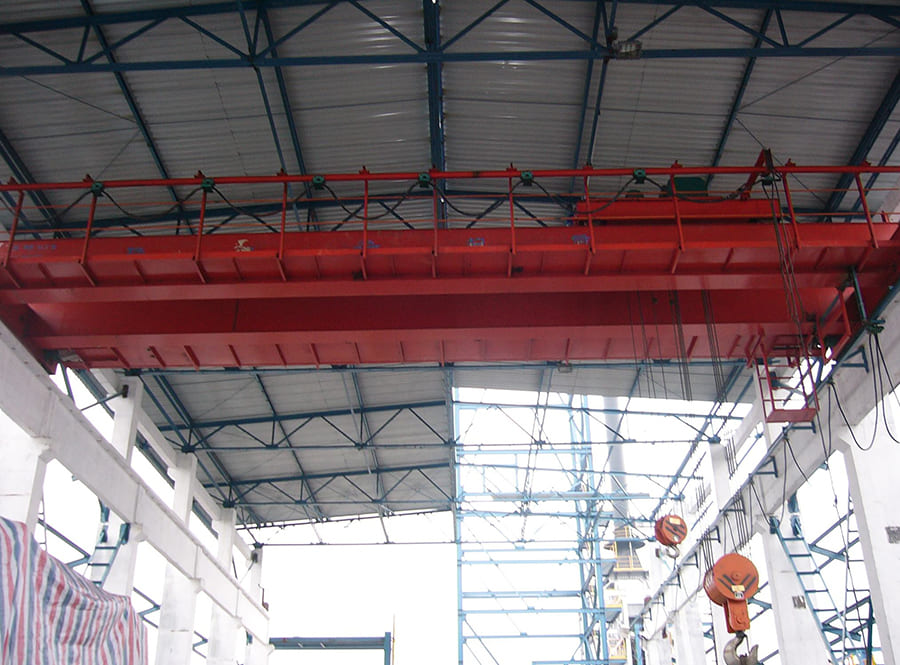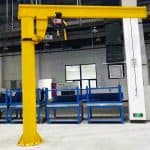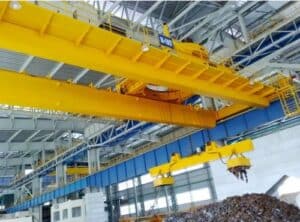Underslung Electric Overhead Traveling (EOT) cranes have emerged as a game-changer in the realm of material handling, offering a fresh perspective on crane design and functionality. Unlike traditional EOT cranes, which are mounted on top of the runway beams, underslung cranes are suspended from the bottom, providing unique advantages that enhance efficiency and flexibility. This article delves into the innovative world of underslung EOT cranes, exploring their distinct features, benefits, and diverse applications.
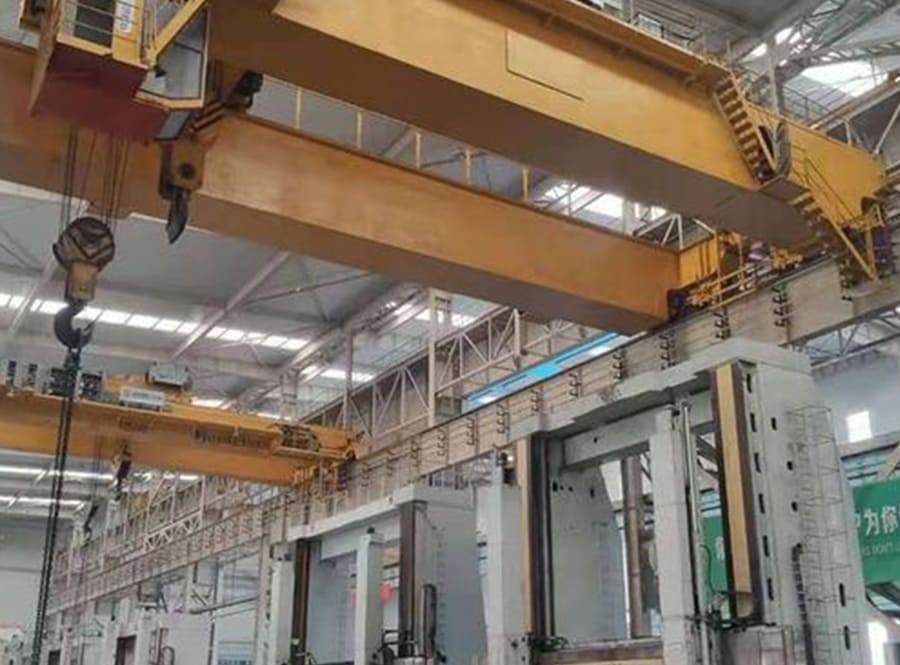
Space Optimization:
Underslung EOT cranes are designed to maximize floor space utilization. By suspending the crane from the bottom of the runway beams, these cranes eliminate the need for additional vertical space for crane components. The compact design allows for efficient usage of overhead space, making underslung EOT cranes ideal for facilities with low ceiling heights or limited headroom. This space-saving feature enables industries to optimize their operational layout and maximize the utilization of available workspace.
Enhanced Load Control and Precision:
Underslung EOT cranes offer superior load control and precision handling. The underslung configuration places the hoist and trolley system closer to the load, reducing the distance between the crane and the object being lifted. This proximity enhances load control, minimizing swaying or swinging during lifting and positioning operations. The result is improved accuracy, reduced risk of damage to delicate or sensitive loads, and increased productivity.
Increased Hook Height and Vertical Reach:
Underslung EOT cranes provide increased hook height and vertical reach compared to traditional cranes. The underslung configuration allows the crane to be mounted at a lower position, thereby extending the available hook height. This feature is particularly advantageous in applications where lifting loads to greater heights is required, such as in warehouses, manufacturing facilities, or assembly lines with tall storage racks or machinery. The extended vertical reach of underslung EOT cranes enables efficient utilization of vertical space and facilitates seamless material handling.
Versatile Installation Options:
Underslung EOT cranes offer versatile installation options to accommodate various facility layouts and requirements. The underslung configuration allows for flexible placement of the crane runway beams, enabling customization based on the available space and operational needs. Underslung EOT cranes can be installed beneath existing structures or equipment, optimizing the use of available infrastructure and minimizing the need for additional construction or modifications. This versatility makes underslung cranes a cost-effective solution and allows industries to adapt to evolving operational demands.
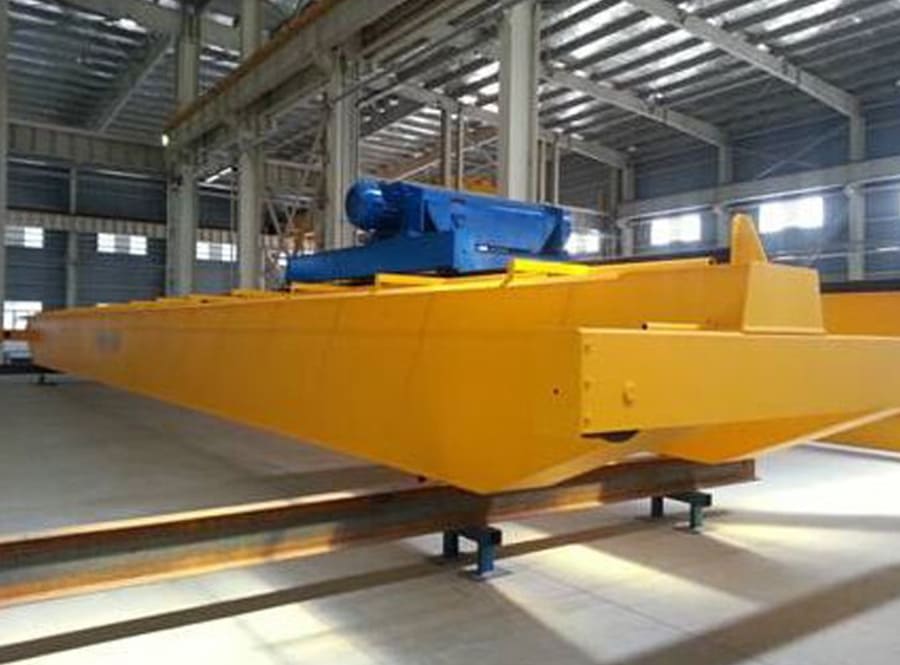
Safe and Ergonomic Operation:
Underslung EOT cranes prioritize safety and ergonomic considerations. With the crane components being suspended from the bottom, the overhead clearance for operators is improved, reducing the risk of head injuries or collisions with the crane structure. The underslung design also provides better visibility of the load and the surrounding work area, enhancing safety during lifting and maneuvering operations. Additionally, underslung EOT cranes can be equipped with advanced safety features, such as anti-collision systems, overload protection, and remote control operation, further ensuring a safe and efficient working environment.
Conclusion:
Underslung EOT cranes have revolutionized the material handling landscape with their space optimization, enhanced load control, increased vertical reach, versatile installation options, and ergonomic operation. These innovative cranes offer a fresh perspective on crane design, enabling industries to maximize efficiency, productivity, and safety. By embracing the benefits of underslung EOT cranes, businesses can optimize their operational layout, handle loads with precision, and adapt to evolving demands, ultimately driving their success in today’s dynamic industrial landscape.

